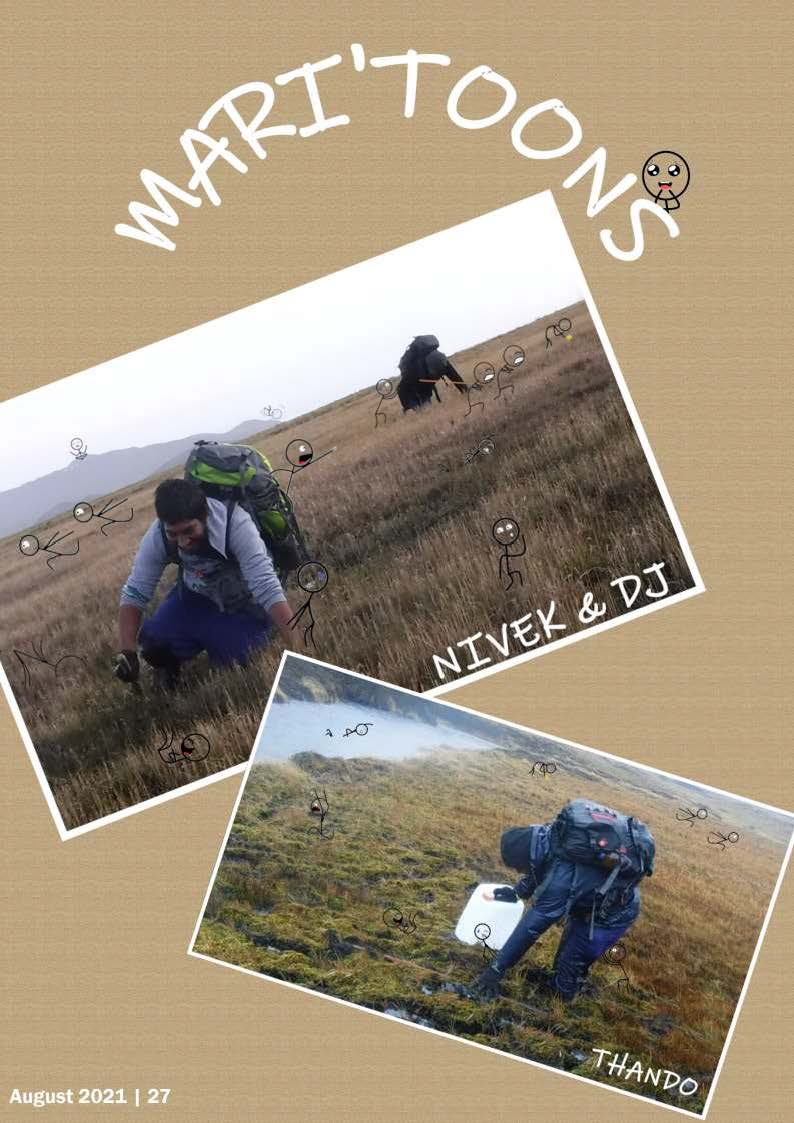
by Ria Olivier | Oct 8, 2021 | Gough Island, Newsletters>Gough Island Newsletters
Final Newsletter from Gough 66 Overwintering team,
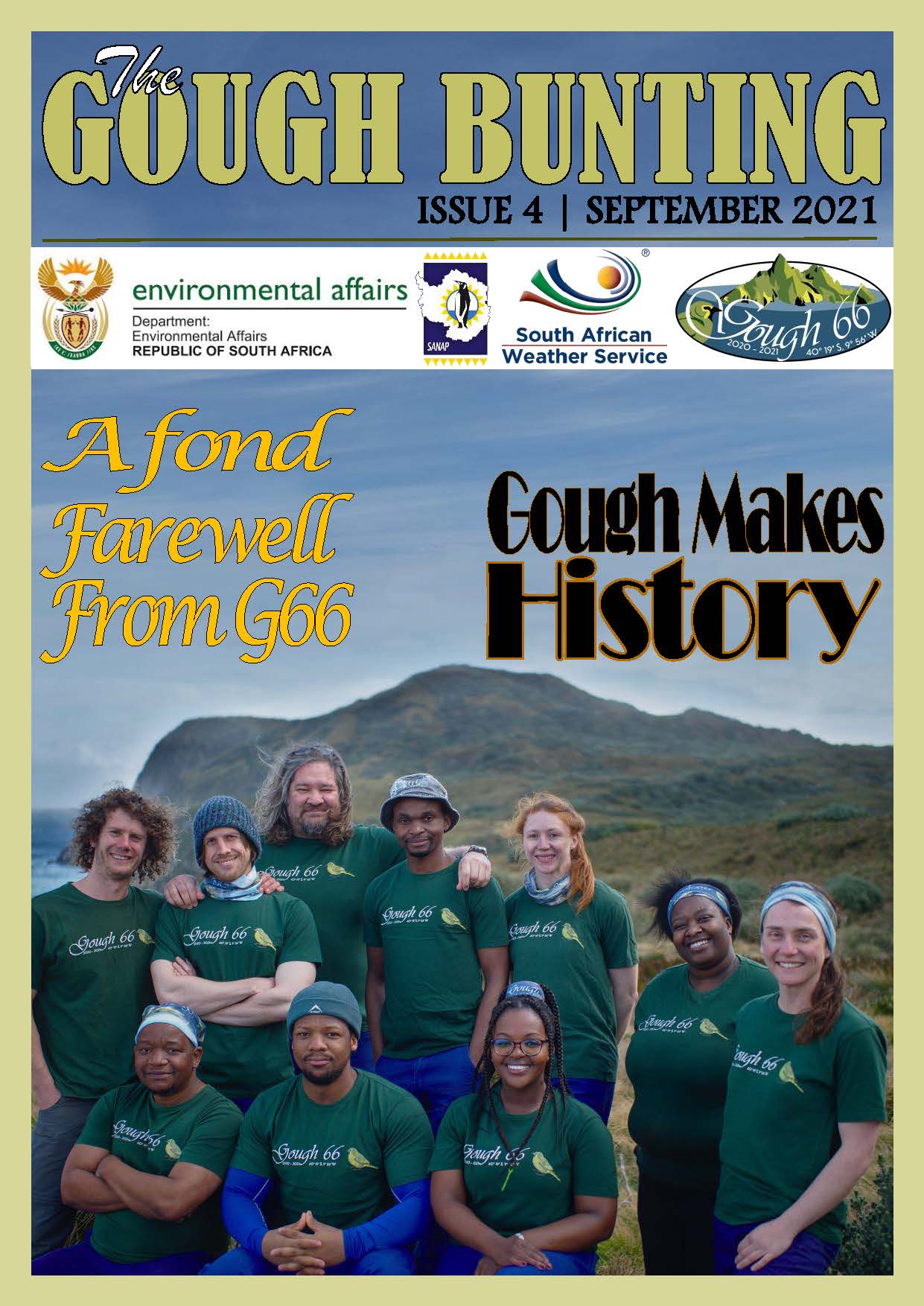 Read in this issue
Read in this issue
- Final Words from the team leader: ” Our 13 months on the island has been filled with a lot of adventure and we were part of history in the making, we accommodated the Geo Searcher crew after they lost their vessel in the sea and got to be part of GIRP. …. I will forever cherish the time I spent on this island with the rest of G66 team members and all our visitors.”
- From The editor: “Here we are once again, with another final issue of a Gough Bunting newsletter. Thank you G66 and GIRP for the best, and busiest, year this island has ever seen. Thank you all once again, and to all the readers of our newsletters.”
- THE GOUGH ISLAND RESTORATION PROGRAMME Some closing words from Andrew Callender (Gough Island Programme Executive), Pete McClelland (Operations Manager) and Amy King (Senior Aviculturist) on the restoration of Gough Island.
- FAREWELL FROM G66 some goodbyes from the Gough Island 66 overwintering team.
- FROM THE METKASSIES monthly weather stats from the SAWS team

by Ria Olivier | Sep 30, 2021 | Antarctica, Data Management, Gough Island, Marion Island, Not-Assigned, Prince Edward Islands, Research, SA Agulhas II, SA Polar Infratsructure, SANAP, Science, Southern Ocean
 South African Polar Research Infrastructure (SAPRI): Launch of the Preparatory Phase
South African Polar Research Infrastructure (SAPRI): Launch of the Preparatory Phase

 The SAPRI team is pleased to inform you that the contractual agreement for the starting of the SAPRI implementation phase is being finalized between the Department of Science and Innovation (DSI) and National Research Foundation of South Africa (NRF). We have now entered the Preparatory Phase of SAPRI’s operationalisation and interim measures are being put in place to ensure progress is made. Until the formal signature of the contract, the SAPRI cannot officially initiate Phase 1, but in the interim the Preparatory Phase will continue the conceptual design of the RI and predispose priority actions with the support of the community.
The SAPRI team is pleased to inform you that the contractual agreement for the starting of the SAPRI implementation phase is being finalized between the Department of Science and Innovation (DSI) and National Research Foundation of South Africa (NRF). We have now entered the Preparatory Phase of SAPRI’s operationalisation and interim measures are being put in place to ensure progress is made. Until the formal signature of the contract, the SAPRI cannot officially initiate Phase 1, but in the interim the Preparatory Phase will continue the conceptual design of the RI and predispose priority actions with the support of the community.

 These achievements would not have been possible without the trust demonstrated by the scientific SANAP community towards the SAPRI team, the contribution and constructive support of the DFFE Oceans & Coasts Branch managing the SANAP logistics, and the commitment to collaborate offered by other institutions that have historically been involved in polar research. This gestation and birth of SAPRI is a major advancement to streamline, consolidate and grow the South African polar sciences, and represent a systemic innovation to maximize the investments of the various governmental institutions involved. The SAPRI will officially start from the advantageous position of being incubated within South African Environmental Observation Network (SAEON), which will fast-track the establishment of the governance and of the consortium agreements.
These achievements would not have been possible without the trust demonstrated by the scientific SANAP community towards the SAPRI team, the contribution and constructive support of the DFFE Oceans & Coasts Branch managing the SANAP logistics, and the commitment to collaborate offered by other institutions that have historically been involved in polar research. This gestation and birth of SAPRI is a major advancement to streamline, consolidate and grow the South African polar sciences, and represent a systemic innovation to maximize the investments of the various governmental institutions involved. The SAPRI will officially start from the advantageous position of being incubated within South African Environmental Observation Network (SAEON), which will fast-track the establishment of the governance and of the consortium agreements.
 The launch of the SAPRI Preparatory Phase was announced via a webinar and a Q&A session to illustrate the main aspects of SAPRI, its organization into integrated facilities, and the first steps of the implementation phase listed in the business plan. To accelerate the implementation phase, it is proposed to initiate an informal Preparatory Phase of SAPRI and to discuss the following actions with the community of stakeholders:
The launch of the SAPRI Preparatory Phase was announced via a webinar and a Q&A session to illustrate the main aspects of SAPRI, its organization into integrated facilities, and the first steps of the implementation phase listed in the business plan. To accelerate the implementation phase, it is proposed to initiate an informal Preparatory Phase of SAPRI and to discuss the following actions with the community of stakeholders:
- Establishment of the User Fora overseeing the requirements of the integrated facilities.
- Implementation of the Task Team for the reorganization of SANAP within the NRF.
- Consultation and discussion on the implementation steps for the Polar Science Transformation Plan.
- Establishment of the DFFE-SAPRI Task Team for assisting with science-related logistics. This will include discussions around the SA Agulhas II dry dock scheduled for November 2021.
 The virtual webinar took place on 29th September 13:00-15:00 and was led by the SAPRI team; Tamaryn Morris, Marcello Vichi, Juliet Hermes, Johannes Pauw.
The virtual webinar took place on 29th September 13:00-15:00 and was led by the SAPRI team; Tamaryn Morris, Marcello Vichi, Juliet Hermes, Johannes Pauw.
- Overview of SAPRI
- Current status, Business Plan priorities, budget requirements and transformation actions
- Q&A
- Preparatory phase
The following links are available to the Antarctic Legacy of South Africa Archive of the webinar recordings and presentations of the South African Polar Research Infrastructure (SAPRI): launch of the Preparatory Phase:
IMPORTANT documents related to and to be read together with SAPRI proposal available on ALSA archive:

by Ria Olivier | Sep 23, 2021 | Announcement, Gough Island, News, Overwintering Team, SANAP, Southern Ocean, Take-Over Operations, Tristan da Cunha
 The 67th Gough Island overwintering team, all crew onboard the S.A. Agulhas II, and take-over personnel have gone through an isolation period and Covid19 testing prior to departure to Gough Island. The vessel departed from East Pier, Cape Town Harbor on the 15th of September 2021 and after a stop at Tristan da Cunha, arrived at Gough Island today, 23 September 2021.
The 67th Gough Island overwintering team, all crew onboard the S.A. Agulhas II, and take-over personnel have gone through an isolation period and Covid19 testing prior to departure to Gough Island. The vessel departed from East Pier, Cape Town Harbor on the 15th of September 2021 and after a stop at Tristan da Cunha, arrived at Gough Island today, 23 September 2021.
This take-over will be led by Mardené de Villiers (Meteorological Officer at South African Weather Service), as Chief Scientist. The team leader of the new Gough Island team (G67) is Sandile Nkebe, who is also appointed as the Medical Orderly of the team. The deputy team leader is Peter Chuku, the Communications Engineer, who has overwintered on Gough Island before (2017/2018).
Three of the team members of G66, Kim Stevens, Vonica Perold, and Roelf Daling, will stay on as part of G67 and continue to play a crucial role in the follow-up stages of the Gough Island Restoration Programme. Read more about this mice eradication programme here.
All the best to all involved in this take-over operations, including the team returning home and to the new team that will be taking over duties on Gough Island.
Meet the rest of the team:
Anche Louw, Antarctic Legacy of South Africa, 23 September 2021

by Ria Olivier | Sep 10, 2021 | Mammology, Research, SANAP, Uncategorised
Ross seal ecology, behaviour and physiology in a changing environment

 SANAP research project by Prof Trevor Mcintyre in die Department of Life and Consumer Sciences at University of South Afrcia as principal investigator and Dr Mia Wege , Co-Invesitigator from Department of Zoology and Entomology at University of Pretoria.
SANAP research project by Prof Trevor Mcintyre in die Department of Life and Consumer Sciences at University of South Afrcia as principal investigator and Dr Mia Wege , Co-Invesitigator from Department of Zoology and Entomology at University of Pretoria.
 Antarctica and the surrounding Southern Ocean marine ecosystems are changing rapidly due to anthropogenic climate change. Seals, whales and seabirds, i.e. top-predators, are abundant and conspicuous components of the Southern Ocean ecosystem. Far-ranging and numerous consumers, they connect food webs and are influenced by the distribution of their prey. Labelled as sentinels of change, they are well-studied in comparison to other Antarctic and Southern Ocean taxa. (Image above: Ross Seal. Credit: Mia Wege)
Antarctica and the surrounding Southern Ocean marine ecosystems are changing rapidly due to anthropogenic climate change. Seals, whales and seabirds, i.e. top-predators, are abundant and conspicuous components of the Southern Ocean ecosystem. Far-ranging and numerous consumers, they connect food webs and are influenced by the distribution of their prey. Labelled as sentinels of change, they are well-studied in comparison to other Antarctic and Southern Ocean taxa. (Image above: Ross Seal. Credit: Mia Wege)
 Ross seals (Ommatophoca rossii), the least-studied of all the Antarctic pinnipeds, are unique in their foraging behaviour. Unlike other Antarctic marine predators, they travel north and away from the Antarctic continent. In summer, they hunt for prey in the open ocean, while in winter they spent the majority of their time within the Marginal Ice Zone (MIZ), tracking the seasonal ice edge as it grows within winter. This unique behaviour raises several questions and opportunities to study the impacts of climate change on their ocean habitat. (Image above: Ross Seal Credit: Mia Wege)
Ross seals (Ommatophoca rossii), the least-studied of all the Antarctic pinnipeds, are unique in their foraging behaviour. Unlike other Antarctic marine predators, they travel north and away from the Antarctic continent. In summer, they hunt for prey in the open ocean, while in winter they spent the majority of their time within the Marginal Ice Zone (MIZ), tracking the seasonal ice edge as it grows within winter. This unique behaviour raises several questions and opportunities to study the impacts of climate change on their ocean habitat. (Image above: Ross Seal Credit: Mia Wege)
 This project aims to create an integrative view of Ross seals focusing on foraging ecology, physiology, and interactions with the MIZ. Fine-scale dive recorders will measure how Ross seals adapt their behaviour within the water column in response to environmental change. Novel physiological data collected on their aerobic dive limit and oxygen storage capabilities will determine whether this species is operating at, or close to, its maximum physiological capacity and therefore less capable of compensating for natural or anthropogenic changes in the environment.
This project aims to create an integrative view of Ross seals focusing on foraging ecology, physiology, and interactions with the MIZ. Fine-scale dive recorders will measure how Ross seals adapt their behaviour within the water column in response to environmental change. Novel physiological data collected on their aerobic dive limit and oxygen storage capabilities will determine whether this species is operating at, or close to, its maximum physiological capacity and therefore less capable of compensating for natural or anthropogenic changes in the environment.
 A time-series created for compound-specific isotope analyses of amino acids using whisker segments will be able discern how specialised these predators are in their diet in relation to changes in a shifting isotopic baseline.Combining these three facets will determine the level of behavioural plasticity in Ross seals and their ability to cope with a changing environment.
A time-series created for compound-specific isotope analyses of amino acids using whisker segments will be able discern how specialised these predators are in their diet in relation to changes in a shifting isotopic baseline.Combining these three facets will determine the level of behavioural plasticity in Ross seals and their ability to cope with a changing environment.

 Above: (Left) Trevor McIntyre (Right) Mia Wege
Above: (Left) Trevor McIntyre (Right) Mia Wege
Read article by Mia Wege et al: “Distribution and Habitat Suitability of Ross Seals in a Warming Ocean”
To indulge in a few more images of of seals. Credit: Mia Wege

 Crabeater seals
Crabeater seals


Weddell Seals
Text and images supllied by Trevor McIntyre and Mia Wege.

by Ria Olivier | Sep 9, 2021 | Marion Island, Newsletters>Marion Island Newsletters, Overwintering Team
 Marion 78 wishes to share some of our most memorable moments from the past two months in the August 2021 edition of the Wanderer. “These moments are cherished by the team; from good food, such as dumpling bread and tender oxtail stew, to birthday celebrations and random corridor chats. May every reader enjoy this edition of our experience as a team on Marlon Island.”
Marion 78 wishes to share some of our most memorable moments from the past two months in the August 2021 edition of the Wanderer. “These moments are cherished by the team; from good food, such as dumpling bread and tender oxtail stew, to birthday celebrations and random corridor chats. May every reader enjoy this edition of our experience as a team on Marlon Island.”
- Colourful Fish
- New Life On Marion
- A Trip To Repetto’s
- Killer Whaler Diaries
- A Rare Visitor
- Fieldtrip Essentials
- Katedraal Visit
- And More……
Click here to download this issue of The Wanderer.


Click here to view all The Wanderers (Marion Island newsletters) available on the ALSA Archive (since 1976).
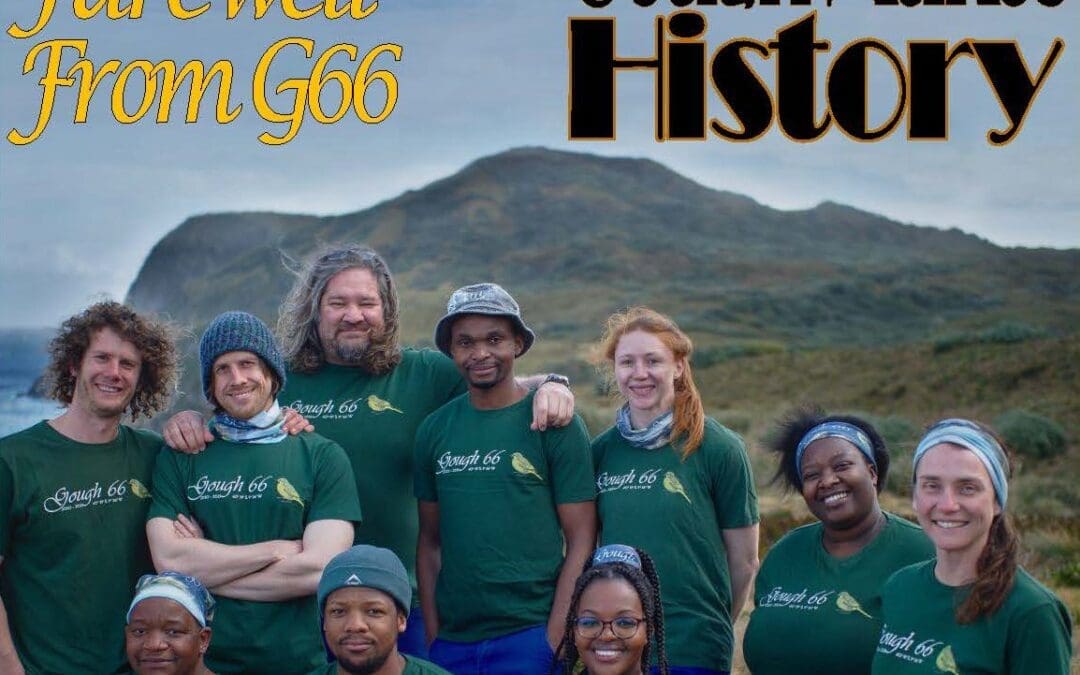
 Read in this issue
Read in this issue
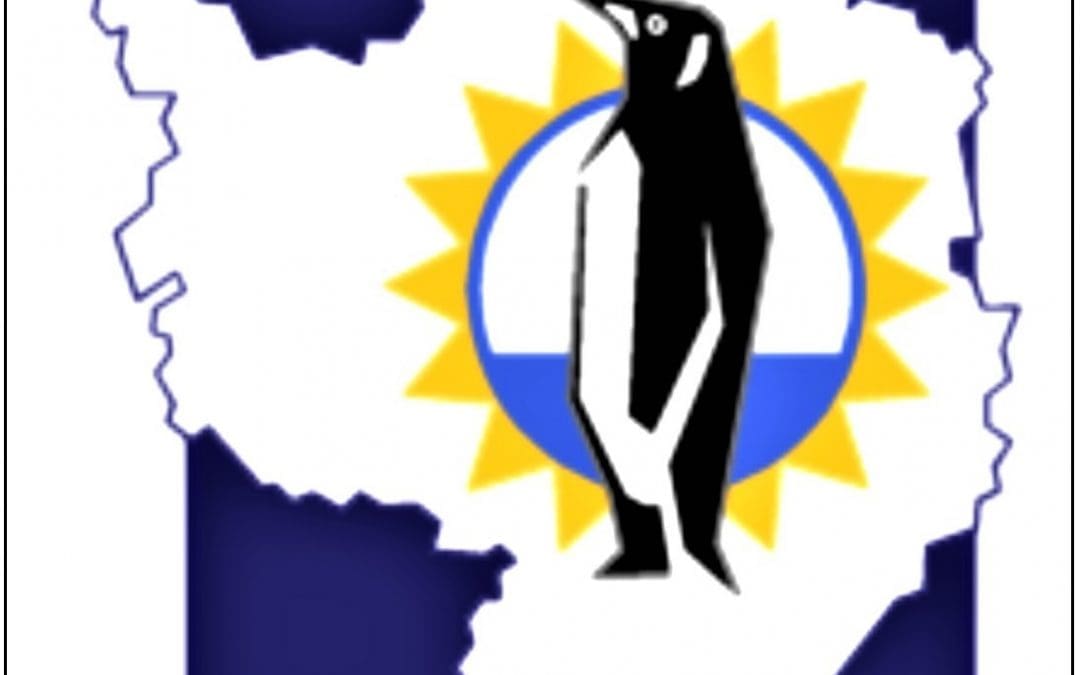
 South African Polar Research Infrastructure (SAPRI): Launch of the Preparatory Phase
South African Polar Research Infrastructure (SAPRI): Launch of the Preparatory Phase
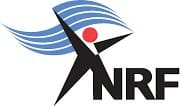 The SAPRI team is pleased to inform you that the contractual agreement for the starting of the SAPRI implementation phase is being finalized between the
The SAPRI team is pleased to inform you that the contractual agreement for the starting of the SAPRI implementation phase is being finalized between the 
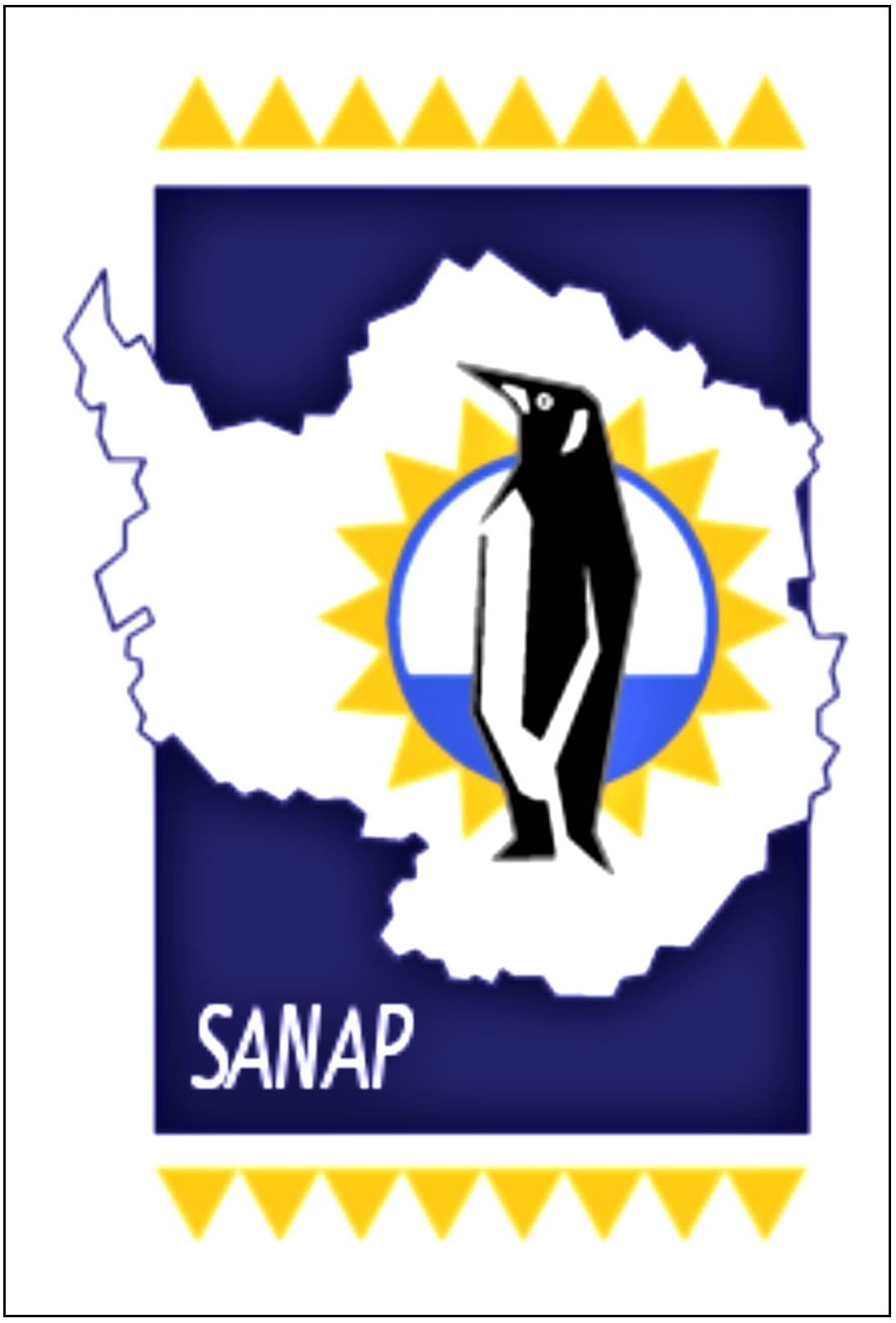 These achievements would not have been possible without the trust demonstrated by the scientific
These achievements would not have been possible without the trust demonstrated by the scientific 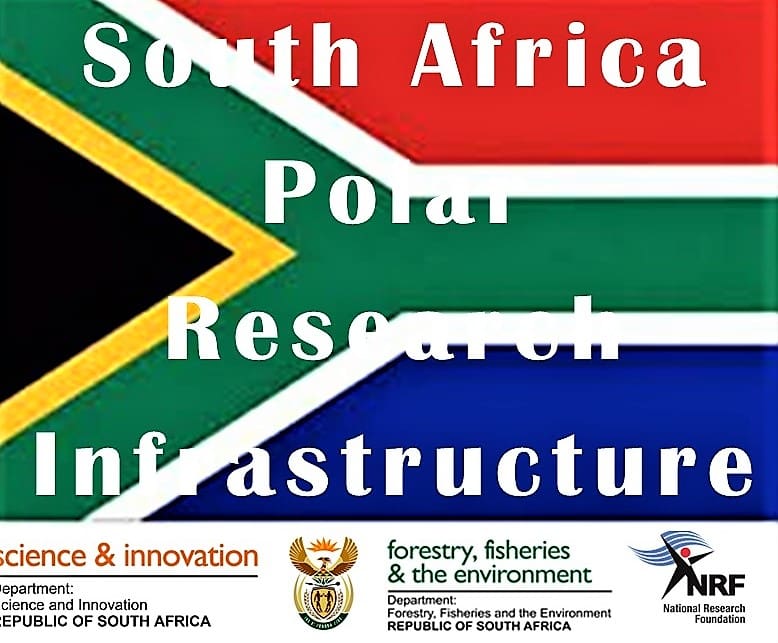 The launch of the SAPRI Preparatory Phase was announced via a webinar and a Q&A session to illustrate the main aspects of SAPRI, its organization into integrated facilities, and the first steps of the implementation phase listed in the business plan. To accelerate the implementation phase, it is proposed to initiate an informal Preparatory Phase of SAPRI and to discuss the following actions with the community of stakeholders:
The launch of the SAPRI Preparatory Phase was announced via a webinar and a Q&A session to illustrate the main aspects of SAPRI, its organization into integrated facilities, and the first steps of the implementation phase listed in the business plan. To accelerate the implementation phase, it is proposed to initiate an informal Preparatory Phase of SAPRI and to discuss the following actions with the community of stakeholders: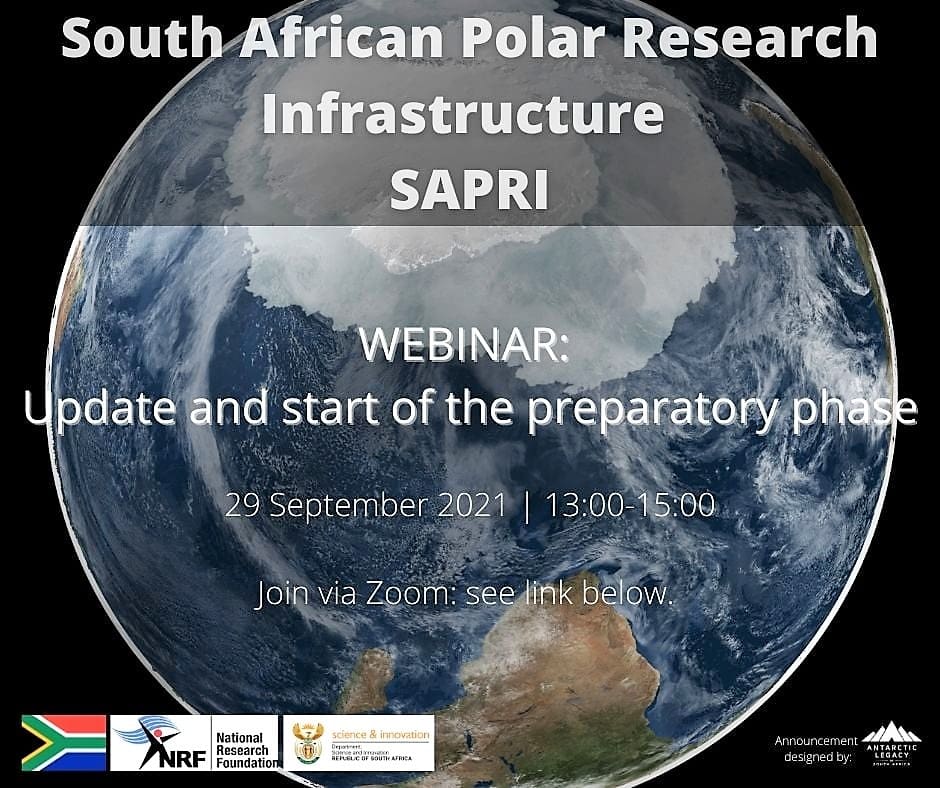 The virtual webinar took place on 29th September 13:00-15:00 and was led by the SAPRI team; Tamaryn Morris, Marcello Vichi, Juliet Hermes, Johannes Pauw.
The virtual webinar took place on 29th September 13:00-15:00 and was led by the SAPRI team; Tamaryn Morris, Marcello Vichi, Juliet Hermes, Johannes Pauw.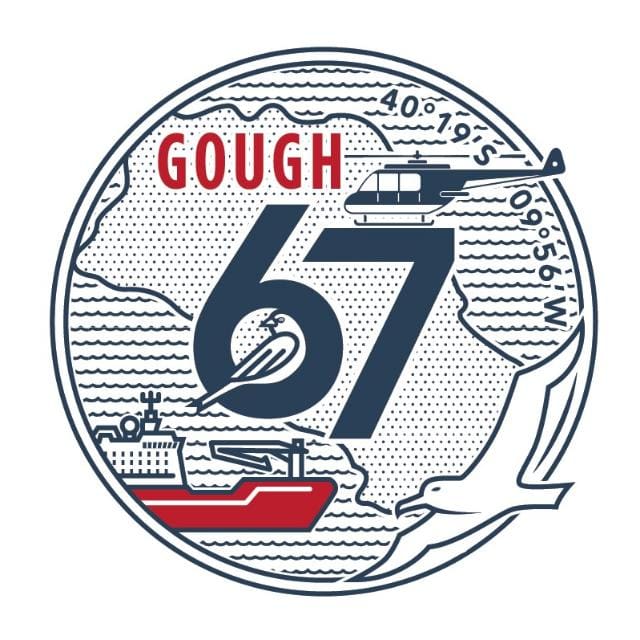
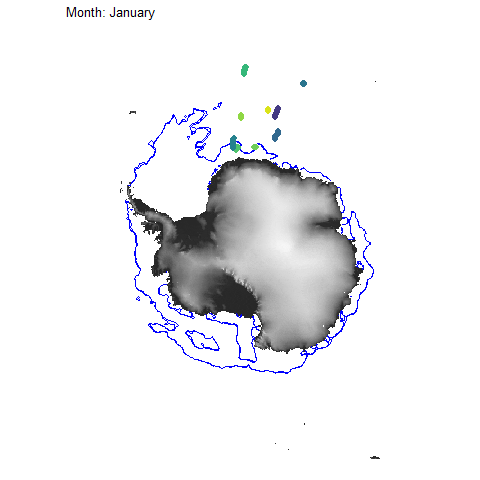
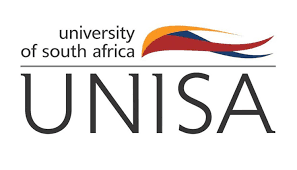

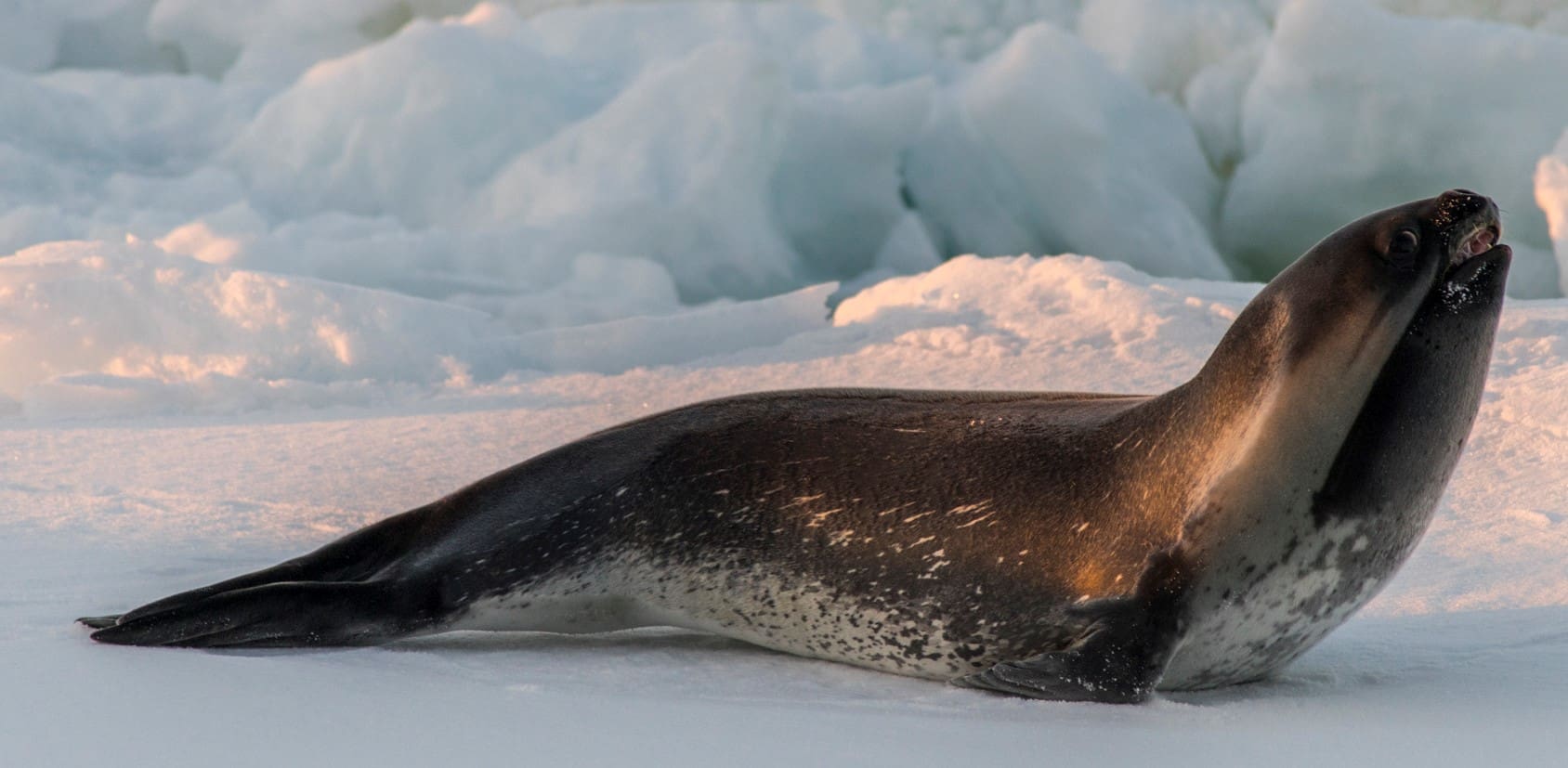 Antarctica and the surrounding Southern Ocean marine ecosystems are changing rapidly due to anthropogenic climate change. Seals, whales and seabirds, i.e. top-predators, are abundant and conspicuous components of the Southern Ocean ecosystem. Far-ranging and numerous consumers, they connect food webs and are influenced by the distribution of their prey. Labelled as sentinels of change, they are well-studied in comparison to other Antarctic and Southern Ocean taxa. (Image above: Ross Seal. Credit: Mia Wege)
Antarctica and the surrounding Southern Ocean marine ecosystems are changing rapidly due to anthropogenic climate change. Seals, whales and seabirds, i.e. top-predators, are abundant and conspicuous components of the Southern Ocean ecosystem. Far-ranging and numerous consumers, they connect food webs and are influenced by the distribution of their prey. Labelled as sentinels of change, they are well-studied in comparison to other Antarctic and Southern Ocean taxa. (Image above: Ross Seal. Credit: Mia Wege) Ross seals (Ommatophoca rossii), the least-studied of all the Antarctic pinnipeds, are unique in their foraging behaviour. Unlike other Antarctic marine predators, they travel north and away from the Antarctic continent. In summer, they hunt for prey in the open ocean, while in winter they spent the majority of their time within the Marginal Ice Zone (MIZ), tracking the seasonal ice edge as it grows within winter. This unique behaviour raises several questions and opportunities to study the impacts of climate change on their ocean habitat. (Image above: Ross Seal Credit: Mia Wege)
Ross seals (Ommatophoca rossii), the least-studied of all the Antarctic pinnipeds, are unique in their foraging behaviour. Unlike other Antarctic marine predators, they travel north and away from the Antarctic continent. In summer, they hunt for prey in the open ocean, while in winter they spent the majority of their time within the Marginal Ice Zone (MIZ), tracking the seasonal ice edge as it grows within winter. This unique behaviour raises several questions and opportunities to study the impacts of climate change on their ocean habitat. (Image above: Ross Seal Credit: Mia Wege)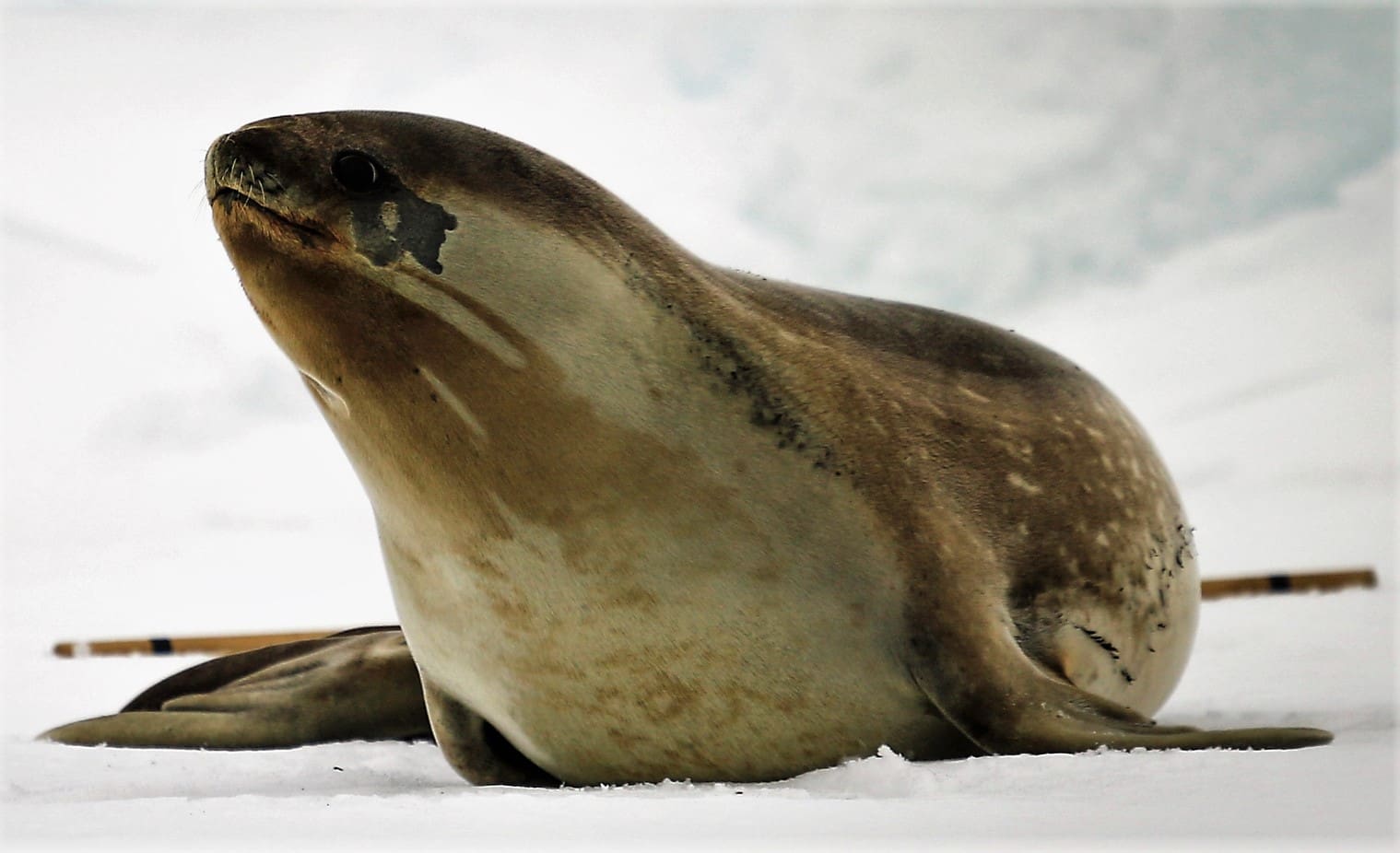 A time-series created for compound-specific isotope analyses of amino acids using whisker segments will be able discern how specialised these predators are in their diet in relation to changes in a shifting isotopic baseline.Combining these three facets will determine the level of behavioural plasticity in Ross seals and their ability to cope with a changing environment.
A time-series created for compound-specific isotope analyses of amino acids using whisker segments will be able discern how specialised these predators are in their diet in relation to changes in a shifting isotopic baseline.Combining these three facets will determine the level of behavioural plasticity in Ross seals and their ability to cope with a changing environment.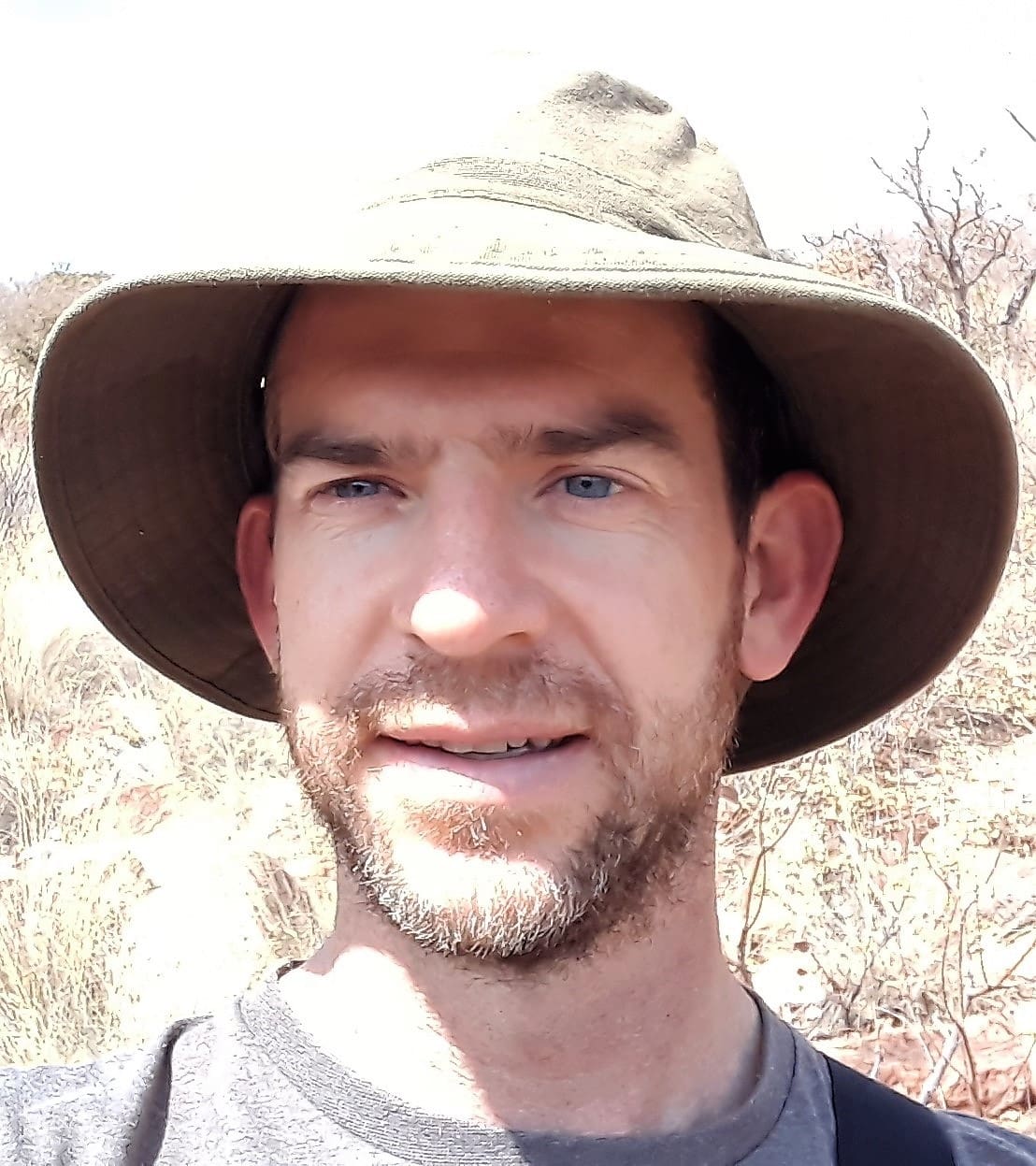
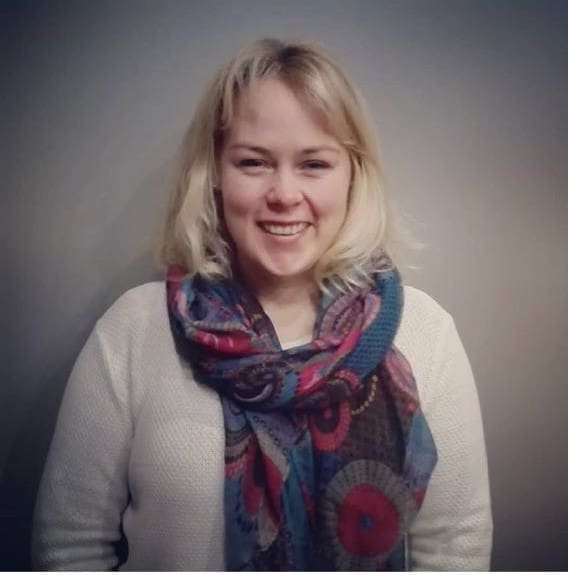 Above: (Left)
Above: (Left) 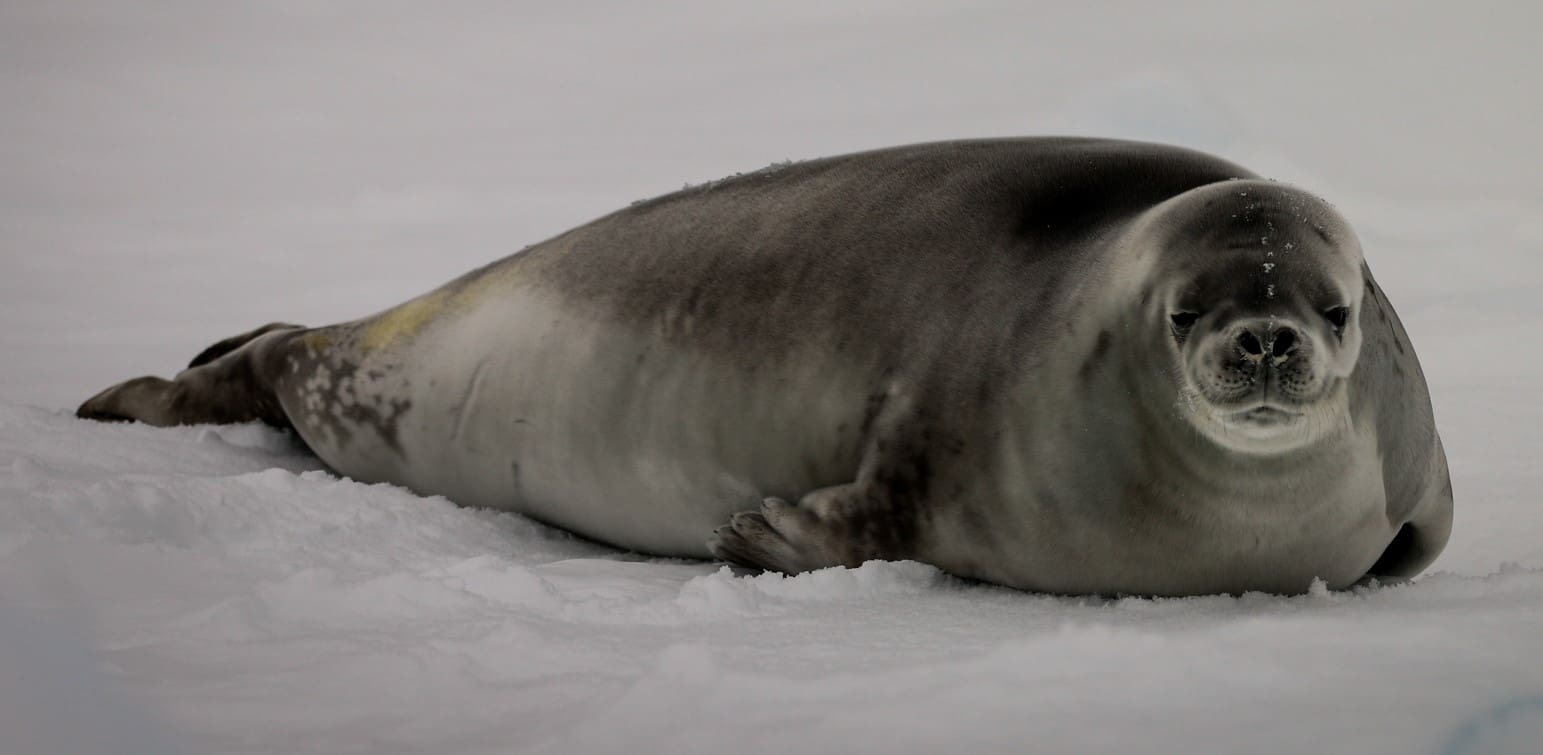
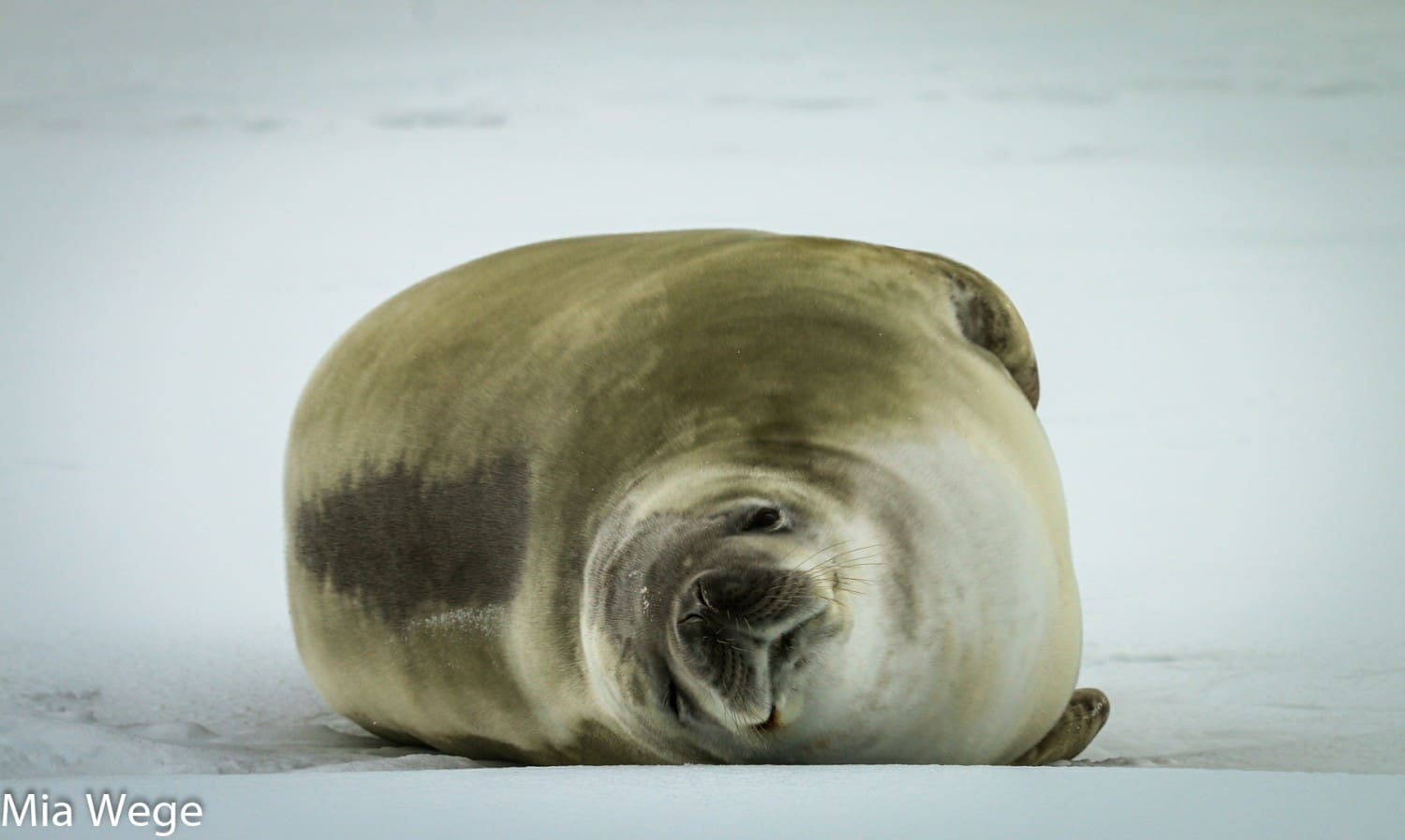 Crabeater seals
Crabeater seals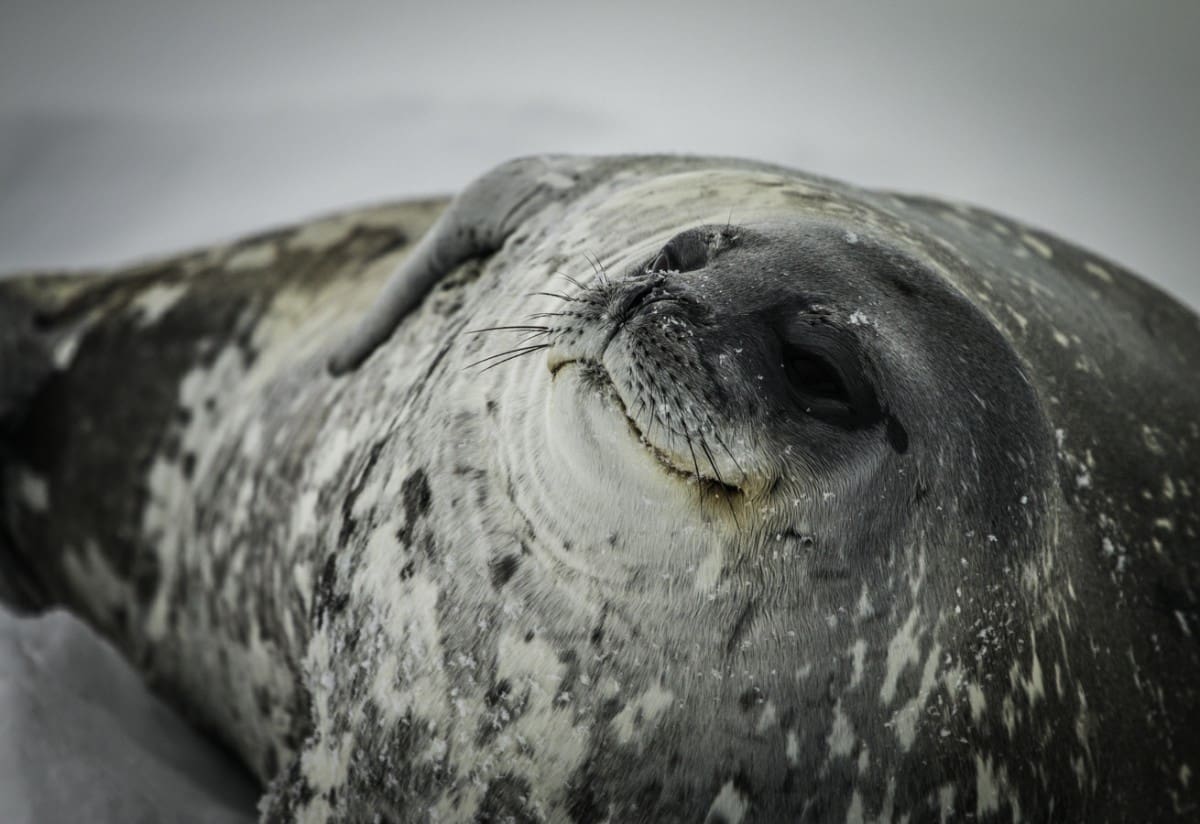
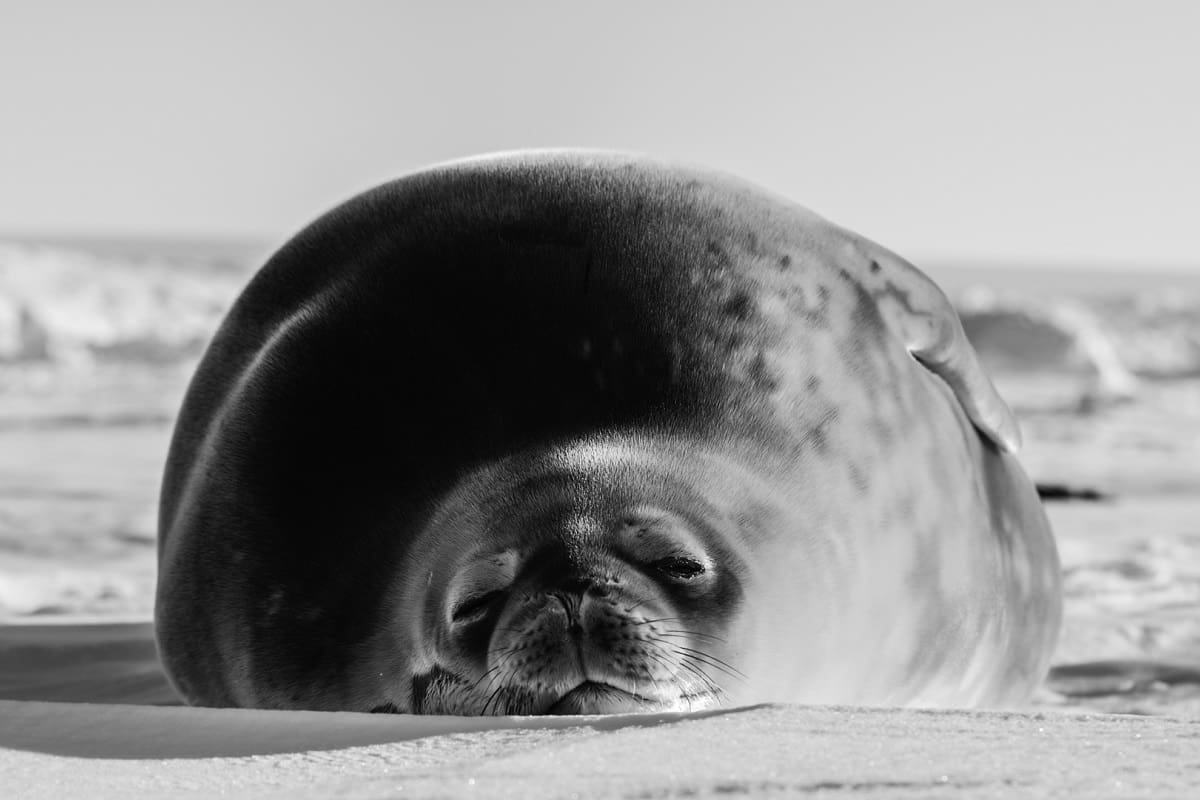
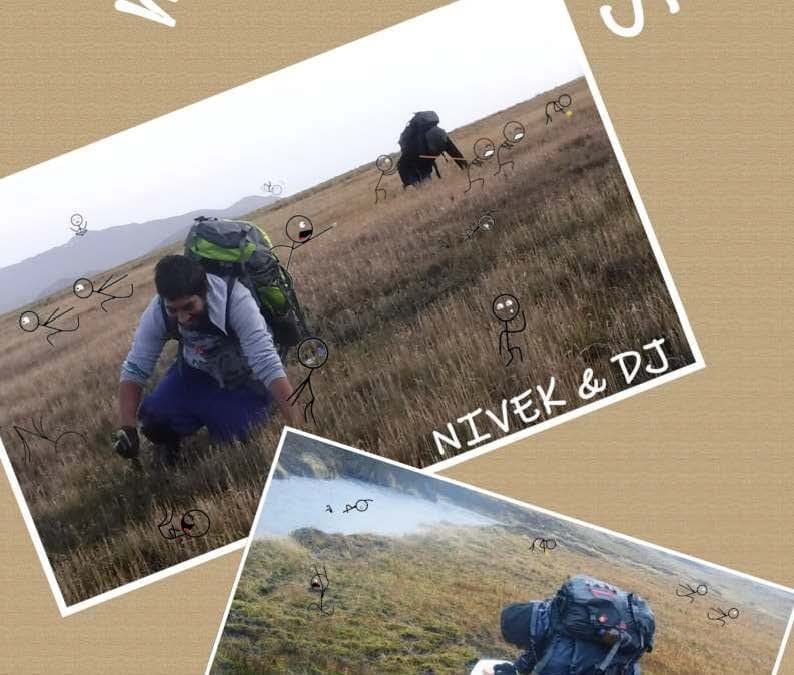
 Marion 78 wishes to share some of our most memorable moments from the past two months in the August 2021 edition of the Wanderer. “These moments are cherished by the team; from good food, such as dumpling bread and tender oxtail stew, to birthday celebrations and random corridor chats. May every reader enjoy this edition of our experience as a team on Marlon Island.”
Marion 78 wishes to share some of our most memorable moments from the past two months in the August 2021 edition of the Wanderer. “These moments are cherished by the team; from good food, such as dumpling bread and tender oxtail stew, to birthday celebrations and random corridor chats. May every reader enjoy this edition of our experience as a team on Marlon Island.”
